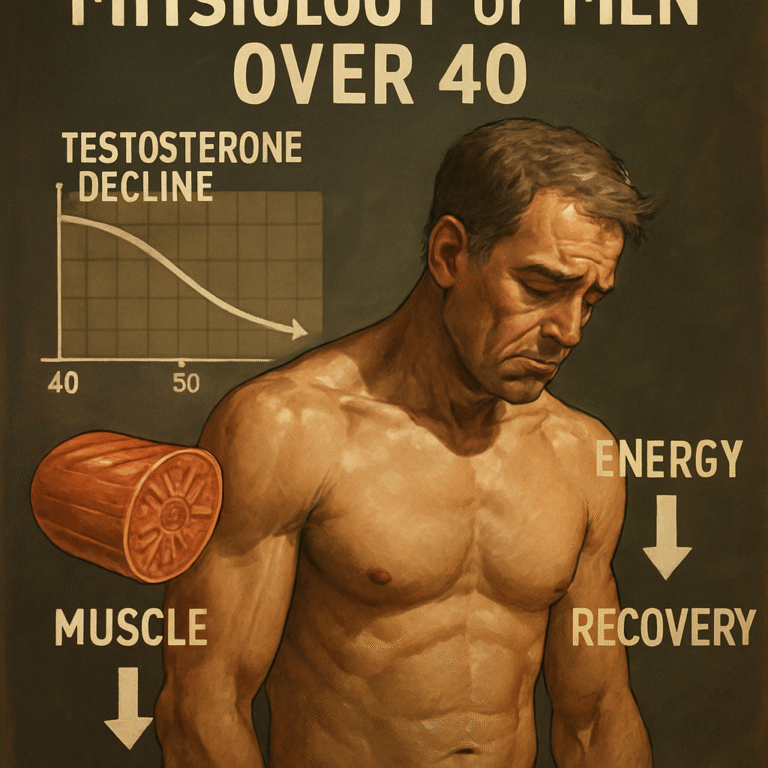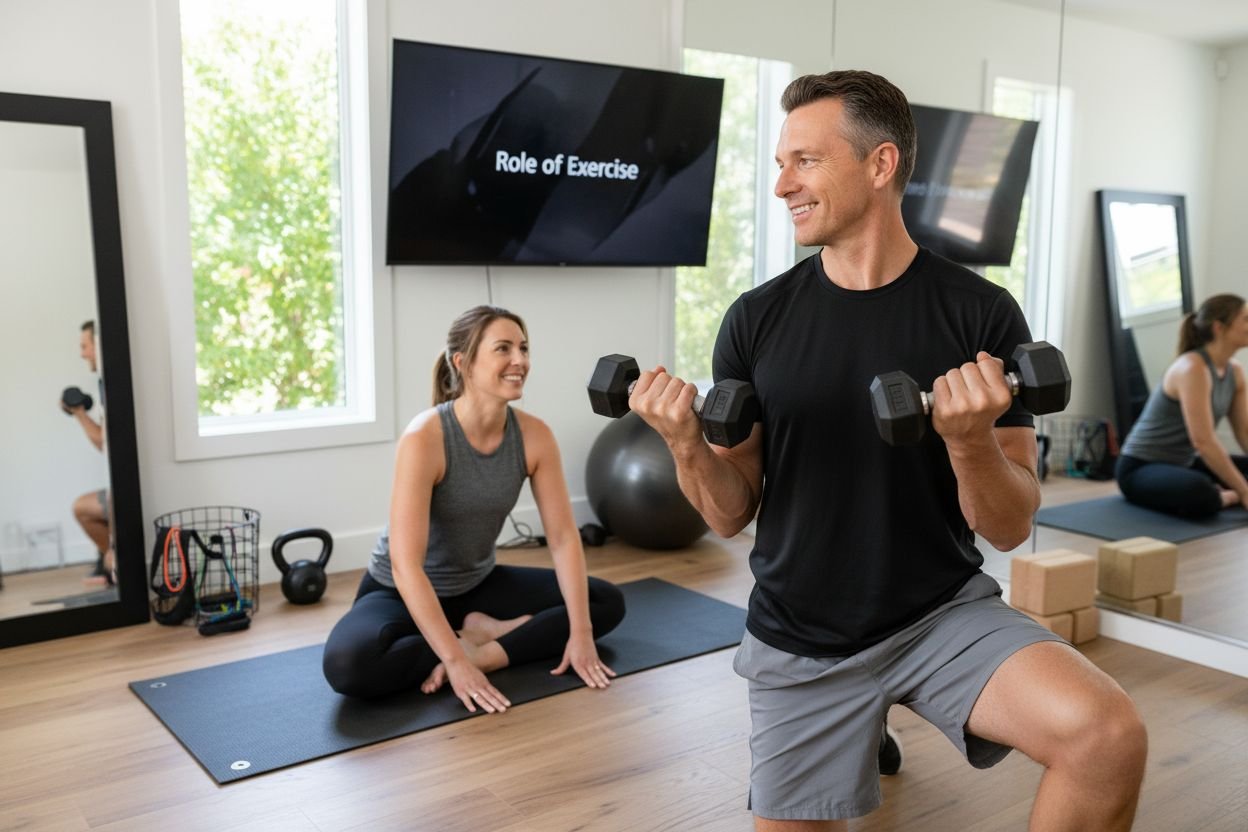Why Pursue Hobbies After 40: Complete Guide
Harvard research reveals how hobbies after 40 boost mental health, combat loneliness, and unlock personal growth men didn't know was possible.

Did you know that people who develop new hobbies after 40 report significantly higher life satisfaction and resilience? Midlife often brings shifts that can leave many men feeling unmoored or isolated. Embracing purposeful hobbies at this stage can transform your health, your relationships, and even your sense of meaning. Discover how the right activities can help you thrive, stay connected, and keep growing no matter your age.
Table of Contents
- Defining Hobbies And Their Midlife Importance
- Physical And Mental Health Benefits After 40
- Personal Growth And Purpose Through New Skills
- Building Social Connections And Community
- Overcoming Barriers And Common Misconceptions
Key Takeaways
| Point | Details |
|---|---|
| Hobbies Enhance Well-Being | Engaging in hobbies significantly boosts mental and physical health, leading to increased happiness, resilience, and cognitive flexibility. |
| Personal Growth through Skills | Pursuing new skills post-40 fosters personal transformation, self-confidence, and a sense of purpose beyond professional life. |
| Social Connectivity is Vital | Hobbies create meaningful social networks, combating loneliness and offering support and accountability through shared interests. |
| Addressing Self-Imposed Barriers | Common misconceptions about age and ability can hinder engagement, but starting small and embracing beginner roles can overcome these limitations. |
Defining Hobbies and Their Midlife Importance
When we talk about hobbies after 40, we’re not discussing casual pastimes – we’re exploring powerful vehicles for personal transformation. According to the Activity Theory of Aging, staying actively engaged through meaningful pursuits isn’t just enjoyable – it’s critical for maintaining mental and emotional vitality.
Hobbies represent far more than simple entertainment. They are deliberate channels for personal growth, social connection, and skill development. Drawing from Nash’s Pyramid, hobbies can range from passive consumption (like watching television) to deeply creative and engaging activities that challenge us intellectually and emotionally.
For men navigating midlife transitions, hobbies serve multiple essential functions:
- Providing a sense of purpose beyond professional identity
- Creating opportunities for social connection
- Developing new skills and maintaining cognitive flexibility
- Offering stress relief and emotional processing
- Expanding personal horizons beyond traditional work roles
The most transformative hobbies push you beyond mere spectator status, encouraging active participation and personal development. Whether it’s learning photography, joining a woodworking club, or mastering a musical instrument, these pursuits represent more than leisure – they’re pathways to continued personal evolution. The Deliberate Man: A Guide to Intentional Living offers additional insights into designing a purposeful midlife journey through strategic personal investments.
Remember: Your next chapter isn’t about slowing down. It’s about stepping into a more intentional, engaged version of yourself.
Physical and Mental Health Benefits After 40
Hobbies aren’t just pleasant distractions – they’re powerful tools for maintaining comprehensive wellness as you age. According to UCLA Health, researchers have identified over 600 ways leisure activities can positively impact human health, with benefits that can be both immediate and long-term.
Mental wellness takes center stage when discussing hobby engagement. A groundbreaking study published in Harvard Health examined over 93,000 participants and discovered remarkable correlations between hobby participation and psychological resilience. Individuals with consistent hobbies reported:
- Higher levels of life satisfaction
- Reduced symptoms of depression
- Increased overall happiness
- Enhanced cognitive stimulation
- Better stress management
Physical health benefits are equally compelling. Hobbies that involve movement, creativity, or social interaction can help counteract the natural physiological changes men experience after 40. They provide opportunities for neuroplasticity, muscle engagement, and maintaining essential motor skills. The Midlife Man’s Blueprint for Men’s Health Over 49 offers additional strategies for integrating holistic wellness practices into your lifestyle.
The key isn’t just having a hobby – it’s finding activities that genuinely spark your passion and challenge you. Your midlife journey is about continuous growth, not limitation. Embrace hobbies as your gateway to a more vibrant, engaged existence.

Here’s a summary of the main benefits hobbies offer after 40:
| Domain | Key Benefits | Examples |
|---|---|---|
| Mental Health | Resilience Happiness Stress Relief | Meditation Creative Writing Music |
| Physical Health | Improved Fitness Motor Skills Neuroplasticity | Cycling Woodworking Yoga |
| Personal Growth | Skill Development Self-Confidence Purpose | Photography Learning Languages Gardening |
| Social Connections | Community Accountability Belonging | Hobby Groups Workshops Sports Teams |
Personal Growth and Purpose Through New Skills
Pursuing new skills after 40 isn’t just about learning – it’s about redefining your potential and creating a roadmap for personal transformation. Harvard Health research reveals that hobbies involving creativity, self-expression, and cognitive stimulation are powerful tools for maintaining mental agility and personal growth.
Skill acquisition in midlife offers profound psychological benefits. By challenging yourself to learn something new, you’re actively combating the misconception that personal development stops after a certain age. According to UCLA Health, engaging in diverse leisure activities can generate immediate and long-term positive health responses, with individual experiences varying based on the specific hobby and personal engagement.
Key advantages of pursuing new skills include:
- Maintaining cognitive flexibility
- Building self-confidence
- Creating alternative performance metrics beyond professional achievements
- Generating opportunities for social connection
- Providing a sense of continuous personal evolution
For men navigating midlife transitions, learning becomes a powerful form of self-renewal. The Midlife Career Reinvention: Design Your Next Chapter offers strategic insights into transforming personal skill development into meaningful life progression.
Remember: Your potential isn’t defined by age, but by your willingness to challenge yourself and embrace continuous learning.
Building Social Connections and Community
In the landscape of midlife, hobbies emerge as powerful bridges connecting men to meaningful social networks and community engagement. Harvard Health research reveals a compelling insight: participating in hobby groups directly counteracts loneliness and isolation, which are critical challenges many men face after 40.
Social connectivity through hobbies isn’t just about casual interactions – it’s about creating genuine, purpose-driven relationships. According to UCLA Health, the type of activity matters less than the consistent engagement and group interaction. Whether you’re joining a local woodworking club, participating in team sports, or attending photography workshops, these shared experiences become fertile ground for deep, meaningful connections.

Key strategies for building community through hobbies include:
- Seeking group-based activities with regular meetups
- Choosing hobbies that naturally facilitate conversation
- Being open to learning from others
- Consistently showing up and participating
- Embracing vulnerability in skill development
For men navigating midlife transitions, these connections offer more than social interaction – they provide support, accountability, and a sense of belonging. The Midlife Career Reinvention: Design Your Next Chapter can help you strategically approach these community-building opportunities.
Remember: Your next meaningful friendship or professional opportunity might be waiting in a hobby group you’ve yet to explore.
Overcoming Barriers and Common Misconceptions
Many men over 40 wrestle with self-imposed limitations about pursuing new hobbies, often rooted in outdated beliefs about personal growth and capability. UCLA Health research reveals that hobby engagement is remarkably flexible, with over 600 potential ways leisure activities can positively impact personal development, challenging the notion that learning has an expiration date.
Skill acquisition after 40 confronts several persistent myths. The most damaging misconception is that you’re too old to start something new. Harvard Health studies involving over 93,000 participants demonstrate that age is not a barrier to personal transformation, with individuals reporting increased happiness and life satisfaction through hobby engagement.
Common barriers men face when exploring new hobbies include:
- Fear of looking inexperienced or foolish
- Limited time due to work and family commitments
- Financial concerns about investing in new skills
- Lack of confidence in learning abilities
- Uncertainty about where to begin
To dismantle these barriers, start small. Choose low-commitment entry points, embrace beginner status, and remember that every expert was once a novice. The Midlife Career Reinvention: Design Your Next Chapter provides strategic approaches to navigating personal transformation.
Your potential is not defined by your age, but by your willingness to challenge your own limitations.
Unlock New Purpose and Vitality with Hobbies After 40
Facing the challenge of finding purpose beyond your career and daily routine can feel overwhelming. This guide showed how hobbies are more than just pastimes—they are key to building mental resilience, enhancing physical health, and creating meaningful connections. If you want to overcome common barriers like fear of starting fresh or uncertainty about where to begin, you are not alone. Many men discover renewed confidence and personal growth by embracing active and engaging hobbies that push personal limits.
Explore how fitness can be a gateway to healthier living and self-discovery through our dedicated section on Fitness After 40 for Men: Workout Routines, Strength Training & Exercise Plans.

Start your transformation today by visiting SecondActMan’s comprehensive guide for men over 40. Learn to turn your hobbies into powerful tools for reinvention and fulfillment. Take the first step now and thrive in your next chapter with expert guidance and community support.
Frequently Asked Questions
How can hobbies benefit my mental health after 40?
Participating in hobbies after 40 can enhance mental well-being by providing higher levels of life satisfaction, reducing symptoms of depression, and improving overall happiness. Studies show that those engaged in consistent hobbies report better stress management and cognitive stimulation.
What are some hobbies that can help with personal growth after 40?
Hobbies that foster personal growth include photography, woodworking, learning a musical instrument, and gardening. These activities challenge individuals, build self-confidence, and offer opportunities for skill development and self-expression.
How can I find social connections through hobbies after 40?
To build social connections through hobbies, seek group-based activities with regular meetings, such as sports teams, hobby clubs, or workshops. Engaging with others who share similar interests fosters genuine relationships and a sense of community.
What barriers might I face when pursuing new hobbies after 40?
Common barriers include fears of looking inexperienced, limited time due to work and family, financial concerns, and a lack of confidence in learning new skills. Overcoming these barriers involves starting small, embracing beginner status, and being open to learning from others.







